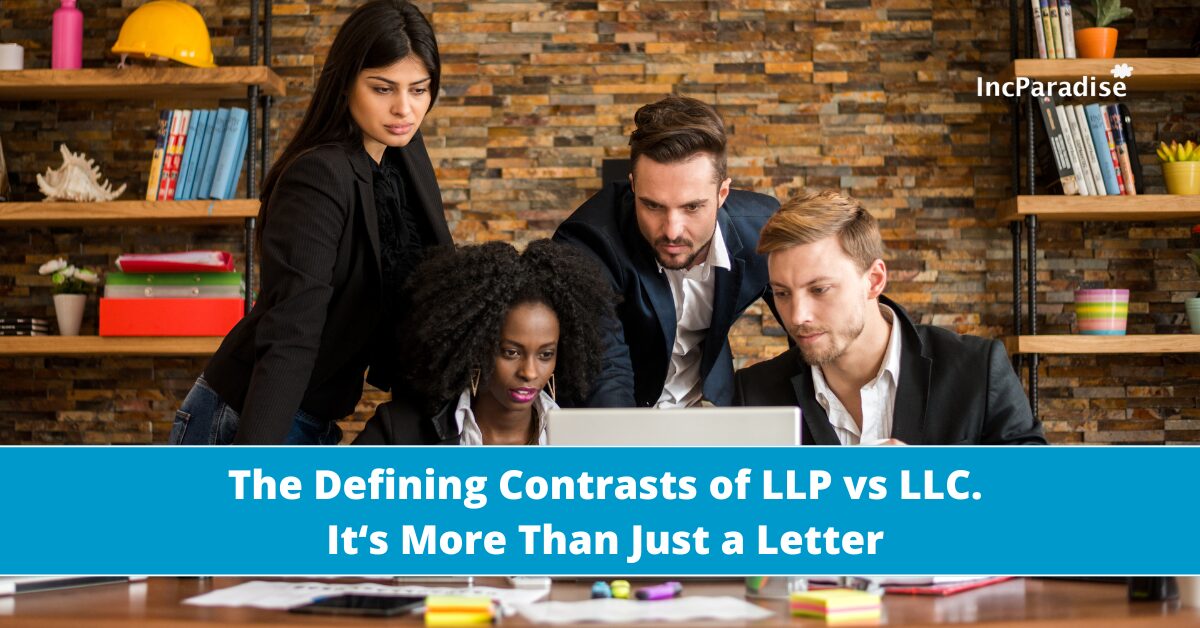E-commerce is on the rise globally, thanks to technological advancements and increased connectivity, which are facilitating its rapid growth. The increased penetration of the Internet and mobile phones into day-to-day life has also been a significant factor in the growth of the e-commerce industry. According to the latest industry reports, global e-commerce sales are expected to reach $7 trillion by 2025. However, to start an e-commerce business, you must choose a business structure.
Businesses have several options for business structures, including sole proprietorships, partnerships, LLCs, and corporations. Choosing the right business structure is extremely important for the success of your business. The business structure determines legal liability, tax obligations, scalability, and funding opportunities for a business. Moreover, the proper business structure can save you a significant amount of money, which you can use in your business operations. There are several factors to consider when choosing a business structure, including liability protection, tax implications, ease of setup, management, and funding options. If you are an aspiring and early-stage e-commerce entrepreneur or a side hustler seeking guidance on the best business structure for your online ventures, then this article is for you. This guide explores the best business structures for e-commerce businesses and provides insights to help entrepreneurs choose the right business structure.

Popular Business Structures for E-commerce
E-commerce businesses operate in various ways, from small home-based sellers to large international brands. The most popular business structures for e-commerce businesses are explained in detail below.
1. Sole Proprietorship
A sole proprietorship is the most straightforward business structure. Setting up a sole proprietorship is easier than setting up other business structures. It is an unincorporated business that doesn’t separate the business and the owner. This means that the business and the individual who operates it are treated as a single legal entity.
Advantages
- Setting up a sole proprietorship is easy and inexpensive.
- Sole proprietorships enjoy lower taxes than other structures.
- Minimal paperwork and compliance requirements.
- A sole proprietorship provides complete control over business decisions and operations.
- Changing the business structure is easier for a sole proprietorship.
Disadvantages
- Sole proprietorships have unlimited personal liability. The owner’s personal assets are at risk.
- The funding opportunities can be limited for a sole proprietorship.
- Business income is taxed as personal income.
2. Partnership
A partnership involves two or more people who are not registered and share the ownership of a business. The income is taxed under the owners’ personal income tax via pass-through taxation. Just like a sole proprietorship, a partnership also doesn’t provide limited liability. The partners in a partnership and the business are treated as a single legal entity.
There are two types of partnerships: General Partnerships and Limited Partnerships. In general partnerships, the business is split into percentages, which are documented and agreed upon beforehand. In limited partnerships, specified partners may have limited control and liability over the company.
Advantages
- It is easier to raise capital in a partnership than in a sole proprietorship.
- Decision-making and responsibilities can be shared among the partners.
- Less risky to start and easy to dissolve.
Disadvantage
- General partners face unlimited liability, meaning personal assets may be at risk.
- Disagreements between partners can impact business operations.
- Requires an explicit partnership agreement to avoid conflicts.
3. LLC
The term LLC stands for Limited Liability Company. An LLC is one of the most popular business structures for e-commerce businesses. It offers a balance between flexibility and protection, making it perfect to start an online venture. They are taxed on the personal income tax of the members via pass-through taxation. They offer limited liability protection, which means the owners’ personal assets are safe from business debts and legal charges.
Advantages
- The owner’s personal assets are separate from business debts.
- LLCs can choose pass-through taxation or opt to be taxed as a corporation.
- Fewer formalities are required to set up an LLC than a corporation.
Disadvantages
- LLCs may have state-specific compliance requirements.
- May have limited funding options as compared to corporations.
4. Corporation
A corporation is a separate legal entity from its owners, which offers the highest level of liability protection. This means that the owners are personally not liable to pay anyone in case of a legal dispute or business debt, keeping the owners’ personal assets safe. Moreover, transfer of ownership is simpler in a corporation than in other business structures.
Types of Corporations
C Corporation
C corporations are entities that are taxable to their owners, meaning they can issue unlimited shares of stock to potential owners. Corporations were designed to be attractive to more investors, thereby giving them opportunities to raise funds.
S Corporation
An S corporation acts as a pass-through entity and is not subject to corporate tax. However, this structure is limited to a maximum of 100 shareholders, which can severely restrict the corporation’s ability to generate capital.
Advantages
- Corporations provide strong liability protection.
- It is easier to attract investors and raise capital for the business.
- Corporations are best for businesses planning long-term expansion.
Disadvantages
- More paperwork, compliance, and regulatory requirements are needed to set up and run a corporation.
- Corporate profits and shareholder dividends are both taxed, resulting in double taxation.
Factors to Consider for E-commerce Businesses
Each structure of an e-commerce business has its benefits. Therefore, entrepreneurs need to consider the following features when choosing a business type for their e-commerce business based on their specific needs.
1. Liability Protection
E-commerce companies often experience a high volume of customer disputes, supplier issues, and product liability claims. Therefore, they need to choose a business structure that provides limited liability protection, such as a corporation or an LLC. These separate personal assets and business assets provide more security. Sole proprietorships and general partnerships do expose owners to individual risk.
2. Ease of Setup and Management
Another crucial consideration while going for a particular business structure is the ease of element and management. A sole proprietorship business would be one of the easiest to set up, requiring minimal paperwork. Other companies, in contrast, like an LLC or a corporation, require complete legal documentation, compliance, and filing requirements. Therefore, it is paramount to weigh which structure fits their business needs and is readily supported by available documentation.
3. Tax Implications
Tax implications are among the most important factors to consider when selecting an organization’s business structure. They deal with the level of money saved as well as the rate of growth experienced. An appropriate business structure can be very beneficial for your e-commerce business, based on its fit with the type of operations you are running.
4. Scalability
If you plan to expand your business, scalability is essential. Corporations are a better opportunity for growth so you can select a corporation as your business structure. LLCs are a good option for e-commerce as they allow both growth opportunities and scalability. On the contrary, they may not provide that much room for bringing in venture capital.
5. Funding Options
Lastly, how you intend to arrange funds may depend on the choice you make for your business structure. The business structure you choose will affect the funding options available to you. Corporations can issue stocks to raise funding through investments on a larger scale; on the other hand, LLCs may sometimes seek private investors.
Choosing the Right Structure for Your Specific Needs
Every business entity has varied needs. The checklist below can help you choose the right business structure for your e-commerce business.
Real-World Examples
1. If you are a handmade jewellery seller on online platforms, you can start as a sole proprietor and later transition to an LLC for liability protection.
2. If there are several co-founders of a dropshipping business, they can form an LLC to protect their personal assets and maintain flexibility at the same time.
3. If you’re an e-commerce entrepreneur looking to raise venture capital, you can incorporate your company as a C Corporation to attract investors.
Partner with IncParadise for Incorporating Your E-commerce Business
Choosing and registering a business structure for an e-commerce company can be a complex process. You can compare the details of the e-commerce business structure in the above guide. You can also partner with IncParadise to incorporate your e-commerce business. Partnering with a professional service provider like IncParadise can simplify compliance and documentation.
IncParadise specializes in business services, including business incorporation, registered agent services, virtual office services, annual report filing, mail forwarding, and many more. The services offered by IncParadise are second to none and can not only help you establish a successful e-commerce business but also run it smoothly. Trust IncParadise and contact us for our expert guidance.








